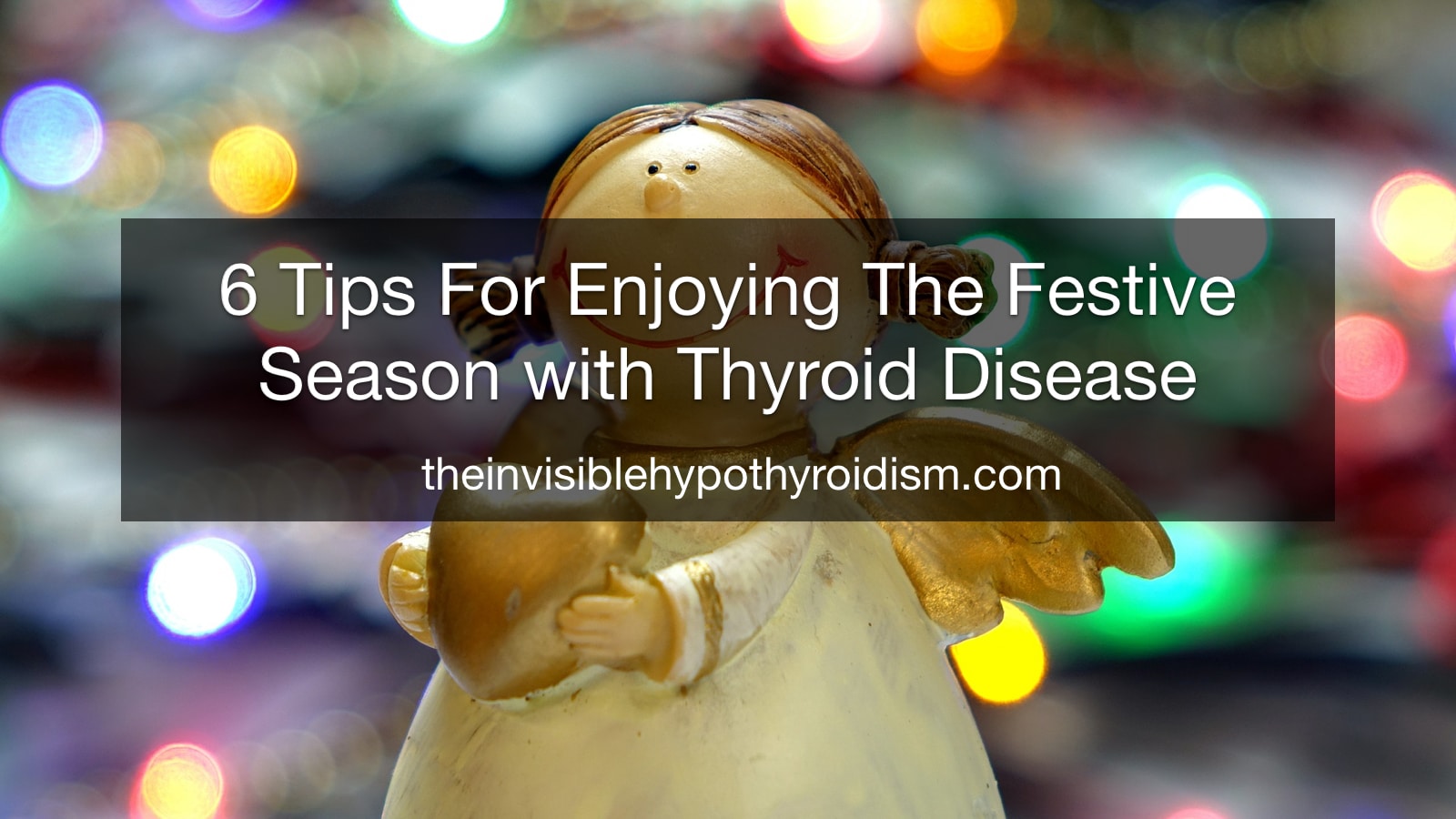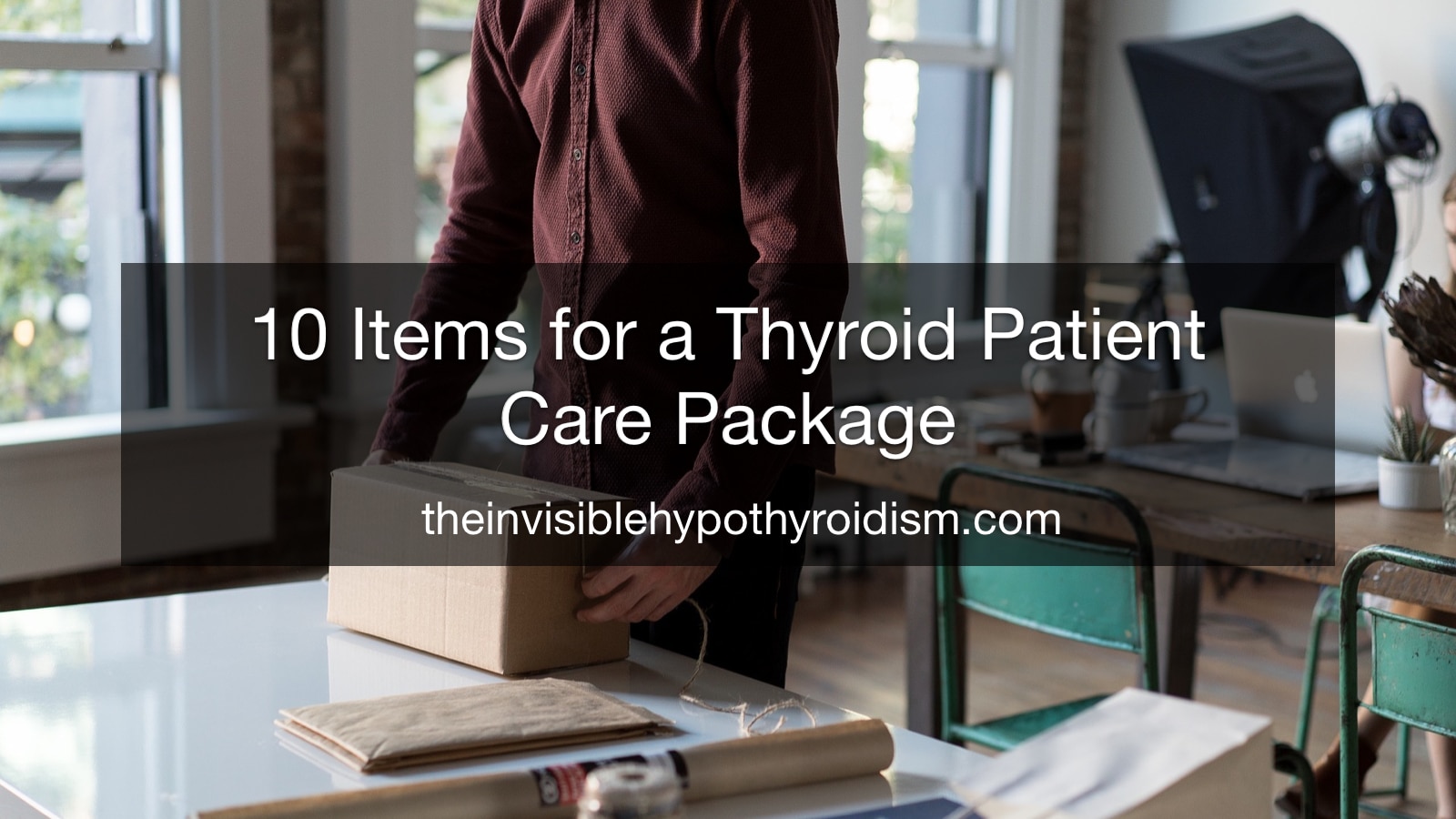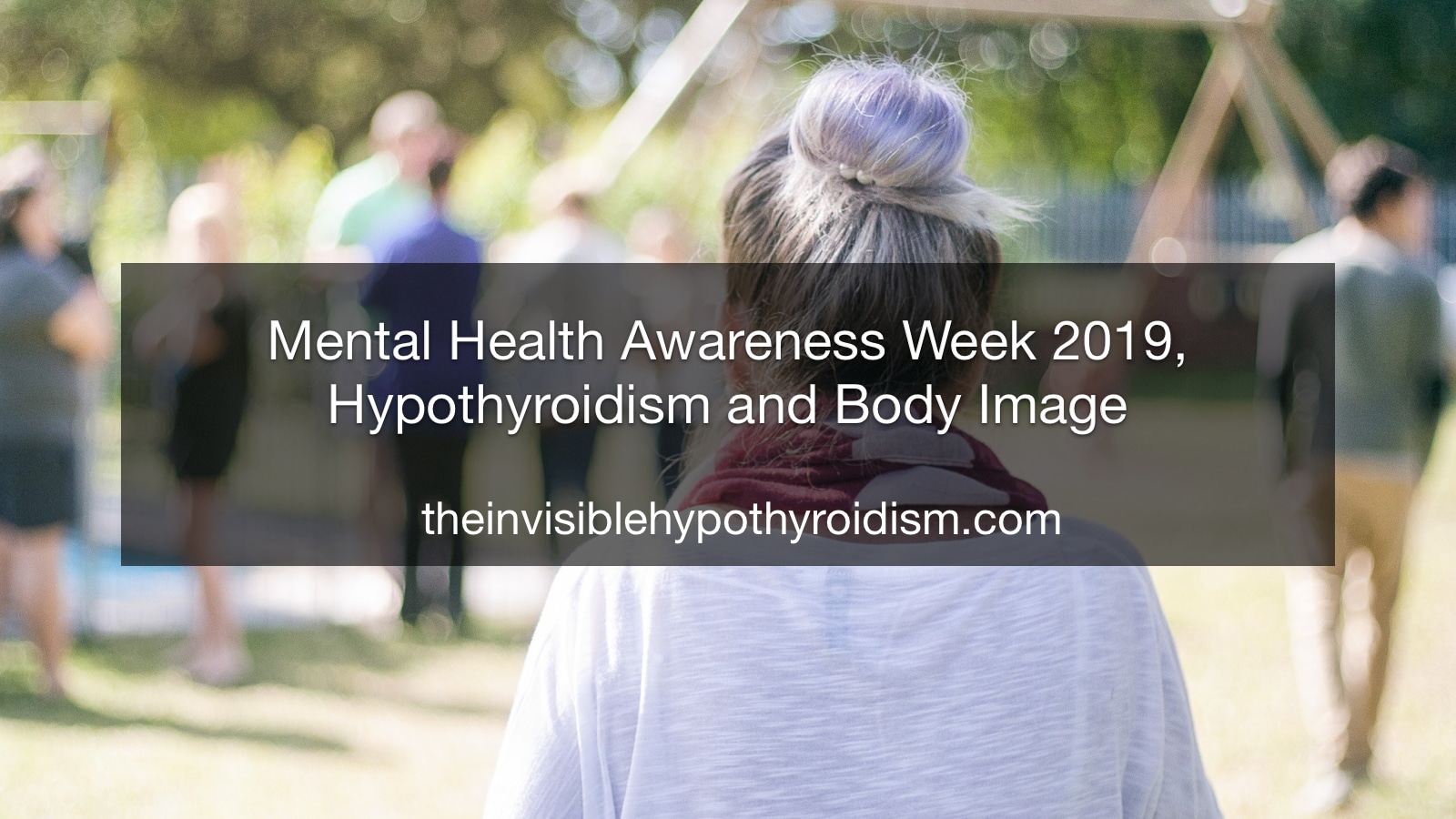Originally published on 26th November 2019 Last updated on 24th November 2023
This time of year is known for being fun, enjoyable, a great opportunity to catch up with friends and family, and take a break from work.
However, once I developed autoimmune hypothyroidism, and during the time it took for me to get it better managed, I learnt some key lessons in surviving the festive season with my thyroid condition so that I could still enjoy it without becoming unwell.
My top tips are below.
I also have a printable checklist you can use for managing your thyroid health over Christmas.
1. Pace Yourself
Learning to pace our energy is perhaps the biggest thing that we can all benefit from.
With how busy the festive period is, I soon learned it’s important to plan my energy usage and any tasks I have, wisely.
For example, Christmas present shopping, card writing, catching up with friends and family, putting up the Christmas tree and decorations, preparing for Christmas day itself and then New Year celebrations… You can quickly become tired just thinking about it all!
Since learning about the spoon theory, I’ve gotten better at understanding my energy levels and how they work.
Whilst it’s true that my health is very good for the most part these days, as my thyroid condition is well managed, I still benefit from keeping an eye on how I use my energy because I don’t have limitless amounts like most other people.
Whereas most others can do however much they want (and can fit) in to a day, I have to bear in mind that if I do too much, it may flare up my thyroid condition and have me paying for it afterwards. I’ve learnt this from experience!
Therefore, I spread my Christmas shopping out over the year, picking gifts up for people as and when I see items in the shops and think ‘_ would like that’, so that it’s one less thing to do closer to the holidays.
When it comes to catching up with friends and family, often to exchange Christmas gifts, I often try to combine them wherever possible, meeting several people in one day for example, so it limits how many days in general are taken up by these social events. Some thyroid patients may prefer to see these people over more days though, as it can also be draining doing a lot of socialising in one day. So go with whichever tends to work better for you, but be mindful of it.
I prepare for Christmas day with the help of my husband and family. He does most of the cooking on the day, so I do most of the cleaning and preparing the house ahead of time.
I also aim to limit the amount of time I’m cleaning on Christmas Day so I can just enjoy the day for what it is, as I prefer to have the house all organised. But this only happens by pacing myself ahead of the day.
Working out everything that needs doing ahead of time and planning when to do them across a few weeks really helps me to spread my energy wisely.
Also, if I need to nap during this busy time of year, I go ahead and just do it. A nap after Christmas dinner never hurt anyone and if my body requires some extra Z’s here and there, I make sure to let it recharge.
2. Make Lists, Lists and More Lists!
As well as starting my present buying early, I also keep a list. Writing down the names of who I’m buying for and, as I wrap what I buy or make for them, noting it down, so I don’t forget!
Thyroid brain fog can get to us all sometimes, but when you’re busy thinking about so many things that need doing over the festive period, forgetting what gift you’ve already got for someone is easy to do.
Now, when people send me a text message on Christmas day, thanking me for the gift I gave them, I can actually remember (or check!) what it was!
It may also be helpful to write down what you receive and from who, as you unwrap gifts or open cards, so that you can send a more personalised thank you instead of forgetting or muddling up who gave you what, too.
3. Manage Seasonal Stress
Managing my stress over the holidays is essential as stress can seriously impact your thyroid health. Finding time for bubble baths (or Epsom Salt baths), sitting in front of the fire with a book to unwind and making time for a few minutes alone here and there, make all the difference for me.
Even when we have family and friends staying over the Christmas or New Year period, I will still excuse myself for a while to get away and have some quiet time if I need it. Usually, saying something like “I’m just going to sit upstairs for a bit and read/relax/have a nap/take a bath” etc. works well and people are quite happy to entertain themselves, so they’re not bothered at all by it.
Another reason why buying Christmas gifts early is great, is because it enables me to avoid the stress of shopping when the stores are busy and chaotic!
While everyone else is running around the shops after work and panicking, I’m at home enjoying Christmas movies, knowing my gifts are all bought and wrapped well in advance.
4. Stick to Your Dietary Requirements
If you are one of the many thyroid patients who follows a diet such as gluten-free (there are many that may benefit people with hypothyroidism and Hashimoto’s) then sticking to this during the holidays is very important, too.
Slipping up or accidentally ingesting something that worsens or aggravates your health conditions can really affect how well you enjoy the festivities.
If you get glutened accidentally, see my article about getting over this here.
When eating at other peoples’ houses, I plan ahead and take my own gluten-free gravy, stuffing, sweets (such as Mince Pies which are a tradition here in the UK), and other usually gluten-filled food alternatives. This way, I know I’m safe to enjoy my food and don’t have to worry about what is lurking in my favourite meal of the year; Christmas Dinner!
I also always pack caffeine-free tea when I go away, as I avoid or limit caffeine too.
Whatever dietary requirements you have, make a list of where they tend to pop up in the usual Christmas food and drink, and stock up on your own alternatives. It’s best to be prepared.
5. Receive the Correct Gifts
As someone with health conditions that can affect what I eat or even use in terms of beauty products, I also like to (gently) remind friends and family who usually give me a gift, about any of my dietary requirements or products that I can’t use due to my health.
I also remind them of the things that I can use and are therefore useful gifts, so they’re not wasting their money on something I can’t utilise.
See my Christmas Gift List for Hypothyroid Patients here.
6. Prepare for Winter
Some people with hypothyroidism benefit from a slight medication dosage increase in winter (though this should always be done under the supervision of your doctor), as when temperatures around us drop, our thyroid often has to work harder to help maintain a normal body temperature. This can mean that when you feel colder, you have an increase in hypothyroidism symptoms, such as aches and pains, brain fog and fatigue.
Every thyroid patient would benefit from a retesting of a full thyroid panel to reevaluate their thyroid levels at this time of year.
Although it may seem obvious, remembering to wrap up adequately and wearing thick jumpers, scarves, gloves, hats and of course a substantial coat, will also help you to keep warm, feel well and promote proper immune system function, too.
Eating and drinking lots of warm food and drinks such as tea, soups and warm lunches are also beneficial. Warm food can be very nutritious, such as homemade soups and broths. There are also thermogenic foods that are named as such as they create heat when they’re converted into energy. Common ones include chillies, pepper, mustard, coconut oil and even avocado.
You’ll also want to think about protecting your immune system over the holidays, since many of us with autoimmune hypothyroidism have a compromised immune system. Consider whether the flu jab is suitable to you. Supplementing Vitamin D, C and B-complex can help support your immune system. No one wants to get sick over the holidays. See a full list of supplements here.
Keep in mind that adrenal stress can greatly lower your immune system’s ability to fight things off, so referring to what I said about managing your stress levels would also be wise.
Have a wonderful Christmas and New Year!










No Comments